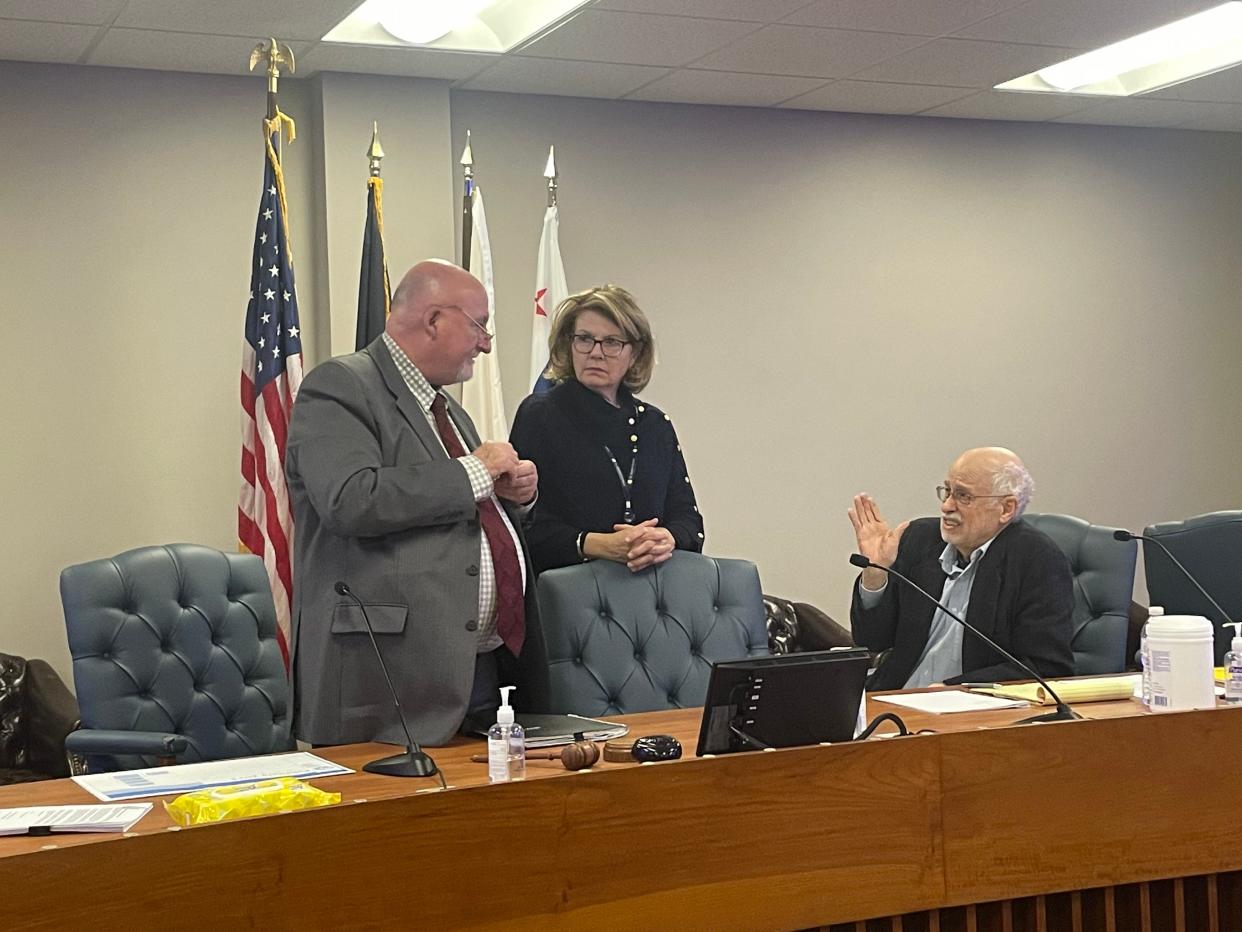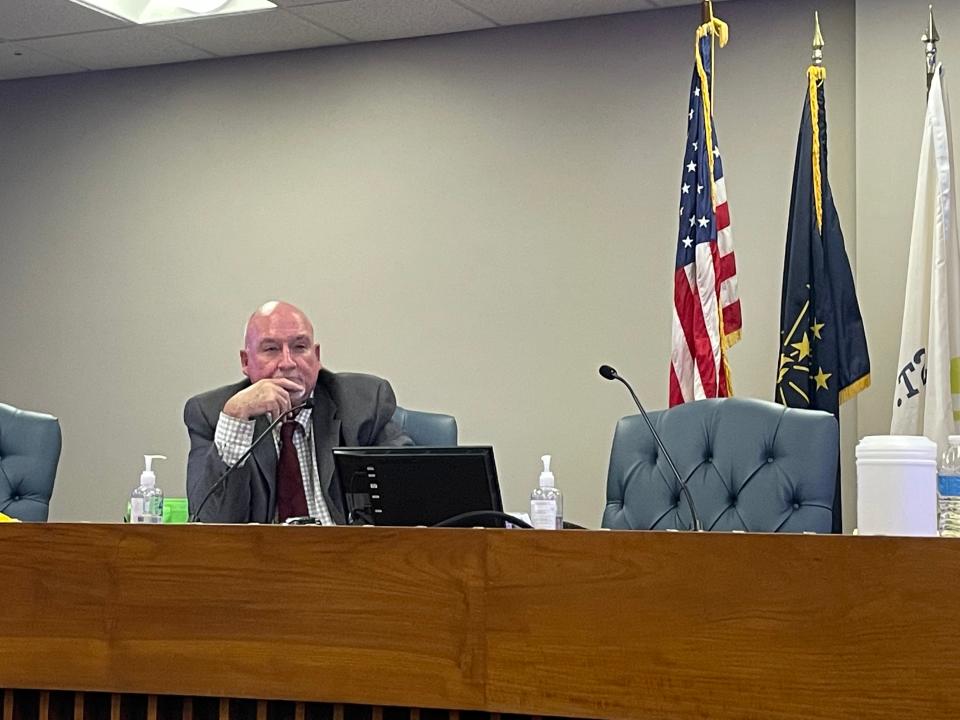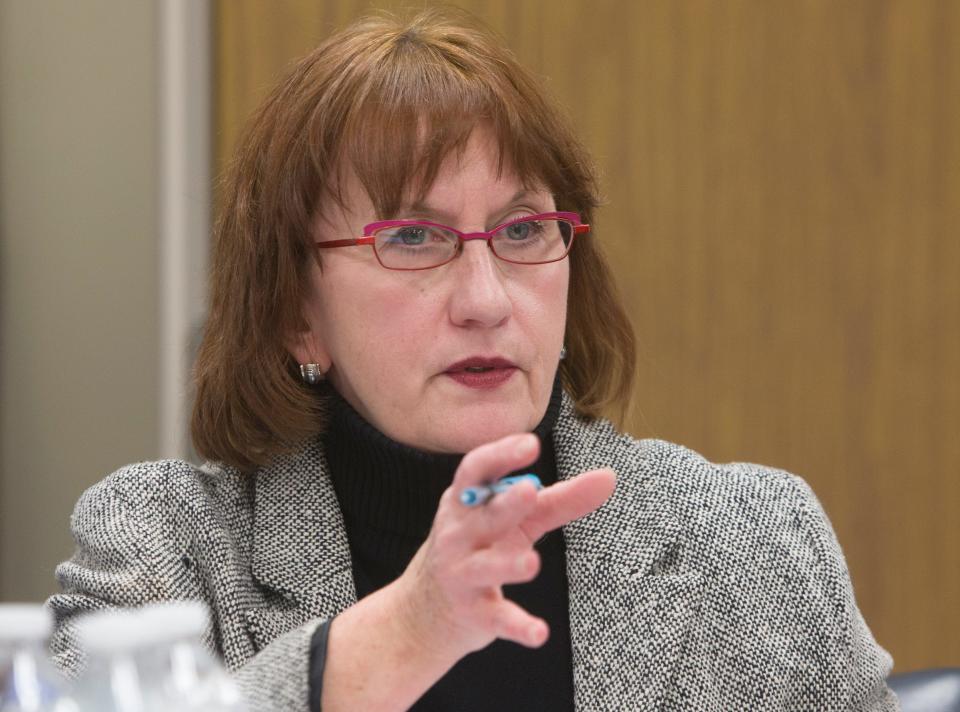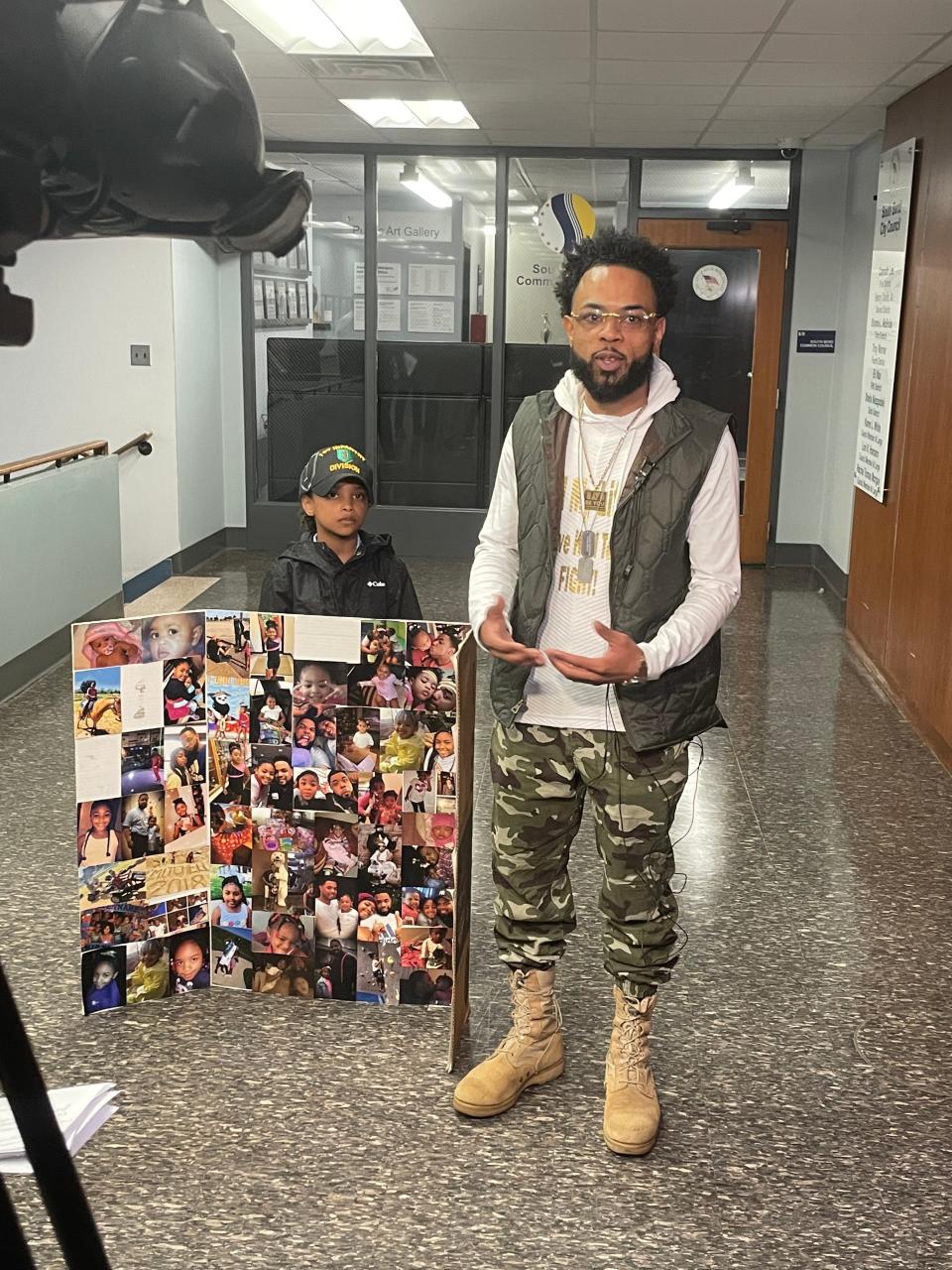South Bend common council candidate allowed on Dems primary ballot despite new state law

SOUTH BEND ― Although Democratic candidate Bruce Mitchell Jr. doesn't meet the requirements of a new state law to run in his party's primary, a split decision by the St. Joseph County Election Board on Wednesday appears to allow him on the ballot.
The statute, which took effect Jan. 1, 2022, requires that the "two most recent primary elections in Indiana in which the candidate voted were primary elections held by the party with which the candidate claims affiliation." Otherwise, the candidate must gain approval from the county chairperson who leads his or her political party.
Mitchell has met neither of those requirements in his bid to run for South Bend Common Council. He last voted in a primary election in 2016 as a Democrat. But a 1-1 vote by the Election Board means that, barring a new challenge, Mitchell will compete against Democratic incumbent Sheila Niezgodski for the 6th District seat. The primary election is May 2.
Last week:New state law and Democratic party seem likely to block South Bend council candidate from ballot
The three-member Election Board actually voted against party lines in its decision not to disqualify Mitchell.
Republican Tom Dixon chose to allow Mitchell on the Democratic ballot while Democrat Chuck Leone said the board is bound by state law not to certify Mitchell. Republican County Clerk Amy Rolfes, the third member, abstained, saying the state law is ambiguous.

Dixon argued that, because Mitchell is Black and Latino, St. Joseph County Democratic Party chair Diana Hess' refusal to approve his candidacy could be construed as discrimination against a member of a protected group.
Hess, who wasn't at Wednesday's meeting, vehemently denied any discriminatory intent at a hearing last week. There are currently four Black Democrats on the South Bend Common Council.
Mitchell and other Black candidates have argued that the two-primaries law, which was proposed in 2021 by four Republicans, inordinately affects young, inexperienced candidates. They also shared the belief that socioeconomic inequality between Black and white residents may mean Black residents are less likely to vote in primary elections.
"Disparate impact means a particular group is being treated differently as a result of the way that the law is being applied," Dixon said. "It doesn't necessarily mean that the person applying the law has a ... discriminatory intent in doing it. It simply means that it's a discriminatory outcome."
Leone, while acknowledging this is a "problematic case," said Dixon errantly considered federal discrimination law in a decision that concerns only the Election Board's authority. Leone cited Indiana Election Code that outlines the narrow role of each county's election board: to "conduct all elections and administer the election laws within the county."
"If we, as an election board, decide that we're not going to follow the letter of the law as it's written in this instance," Leone said, "then what is the rule, what is the threshold, under which we are also going to ignore Indiana law under other circumstances where someone makes a strong case?"
In Evansville:Field of Evansville mayor candidates down two after election board action
Leone noted that the state law was used last year in St. Joseph County to bar Kevin Conery from running to represent the Republican Party in a primary for the District 1 county commissioner's race. Conery did not pass the two-primaries test and wasn't certified by the county GOP chair, leaving Carl Baxmeyer unopposed.
Dixon said the difference, to him, is that the county GOP chair was candid about the decision being political. In this instance, he said, he would have honored the Democratic chair's choice if Hess had said the party simply prefers the incumbent, Niezgodski.
Leone, whose roughly seven-month tenure makes him the longest-serving member of the Election Board, said it's unclear what would happen if a new challenge is levied against Mitchell's candidacy. Leone believes allowing Mitchell on the ballot as a Democrat subverts state law.
"I don't see anything in Indiana election law that allows us to make an exception to those particular requirements," Leone said.
Democratic chair still does not approve Mitchell's candidacy, as state law requires

Local Democrats argue the state election code doesn't support a county chair retroactively choosing to let Mitchell run as a Democrat. Mitchell needed to have been approved by the Feb. 3 filing deadline for the May 2 primary, the party says.
State law, according to the party's interpretation, "precludes the filing of a certification of party membership by a county chair at this late date."
"We were fair and consistent with both individuals and explained to them the reason why they did not meet the requirements for certification," county Democrats said in a statement. "The same 'two primary' rule was used by the SJC Republican Party when they did not certify Mr. Kevin Conery in the 2022 County Commissioner District 1 race.
"Mr. Mitchell was the only person who decided to file without meeting either the 'two primary' rule and without certification from the chair of their respective political party."
What initially happened between Mitchell, Democratic Party leadership

In a Tribune viewpoint, Mitchell, 32, said he's a "lifelong Democrat" and a native of South Bend's west side, where most residents are Black or Latino and tend to vote for Democrats.
When Mitchell met with Hess in January to seek her approval to run as a Democrat, he argued that his family's deep roots in the 6th District "can galvanize many who feel unheard by local and national politics."
But Hess refused to certify Mitchell and one other candidate who failed to meet the two-primaries requirement. Democratic Party leadership decided on a sweeping application of the new law, Hess told The Tribune.
Tribune editorial team:Will local Dems take opportunity to be fair, inclusive?
In a statement made Wednesday by the St. Joseph County Democratic Party, Hess attempted to extract herself from the dispute by saying she had promised Mitchell she wouldn't object to his candidacy. Hess said the only conflict was between Mitchell and the man who filed the challenge, longtime Democrat Mike Kruk.
But at the source of Kruk's objection is Hess' initial disapproval.
Kruk, a precinct committee chair in the 6th District, says he objected to Mitchell's candidacy because Mitchell couldn't check one of two boxes on a filing form. Mitchell had to signify that he either met the two-primary requirement or that the Democratic Party's county chair ― Hess ― had waived that mandate.
In effect, Hess' initial decision made up Kruk's mind. Kruk obtained Mitchell's filing through a public records request and, as a 6th District resident, filed the objection.
"I challenged it because, on the form," Kruk said, "neither of those boxes were checked."
Questions swirled about whether Niezgodski was involved in Kruk's decision to challenge her would-be opponent.
"I have not influenced the challenge that is before the election board," Niezgodski said Wednesday in a statement to The Tribune. "I’m focusing on my reelection campaign irrespective of any other candidate.”
Kruk, however, was more ambiguous.
When asked by The Tribune if Niezgodski prompted him to file an objection, Kruk said: "I'll just say I don't think it's relevant to the discussion. I think everybody should expect everybody else to play by the same rules they’re playing by."
Kruk conceded the two-primaries law may be unfair, especially to younger and inexperienced candidates.
Since the law took effect a year ago, there haven't been two primaries in which candidates could vote in order to comply by this election cycle. The only option for such people is to seek the party chair's approval.
Kruk also lamented that there were no vote centers in the 6th District during last year's primary election for federal, state and county races.
Niezgodski, who took office in January 2020, was a vocal critic of the absence of polling places in her district, saying last September "it was apparent that not everyone had equal access to the ballot, especially the voters located within the 6th District."
The Election Board responded by adding two centers in the district ahead of the November general election.
Contact South Bend Tribune city reporter Jordan Smith at 574-235-6480 or JTsmith@gannett.com.
This article originally appeared on South Bend Tribune: Election board subverts state law, puts candidate on Dem primary ballot

